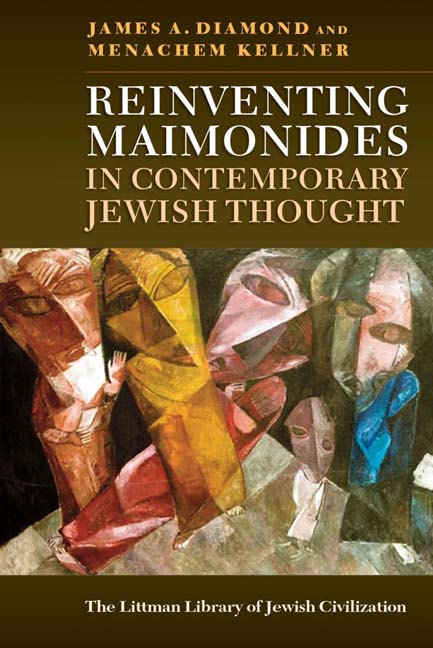Book contents
- Frontmatter
- Dedication
- Acknowledgements
- Contents
- Note on Transliteration
- Introduction
- 1 Rabbi Naftali Tsevi Yehudah Berlin: The Love of Israel versus the Love of the Mind
- 2 Rabbi Joseph B. Soloveitchik and Maimonides
- 3 Rabbi Abraham Isaac Kook and the Mystification of Maimonidean Rationalism
- 4 Maimonides and Rabbi Kalonymus Kalman Shapira: Abandoning Reason in the Warsaw Ghetto
- 5 Rabbi Elhanan Wasserman on Maimonides, and Maimonides on ‘Reb Elhanan’
- 6 Each Generation and Its Maimonides: The Maimonides of Rabbi Aharon Kotler
- 7 What, Not Who, Is a Jew: Halevi–Maimonides in Those Days, Rabbi Aviner and Rabbi Kafih in Our Day
- Afterword
- Bibliography
- Index
1 - Rabbi Naftali Tsevi Yehudah Berlin: The Love of Israel versus the Love of the Mind
- Frontmatter
- Dedication
- Acknowledgements
- Contents
- Note on Transliteration
- Introduction
- 1 Rabbi Naftali Tsevi Yehudah Berlin: The Love of Israel versus the Love of the Mind
- 2 Rabbi Joseph B. Soloveitchik and Maimonides
- 3 Rabbi Abraham Isaac Kook and the Mystification of Maimonidean Rationalism
- 4 Maimonides and Rabbi Kalonymus Kalman Shapira: Abandoning Reason in the Warsaw Ghetto
- 5 Rabbi Elhanan Wasserman on Maimonides, and Maimonides on ‘Reb Elhanan’
- 6 Each Generation and Its Maimonides: The Maimonides of Rabbi Aharon Kotler
- 7 What, Not Who, Is a Jew: Halevi–Maimonides in Those Days, Rabbi Aviner and Rabbi Kafih in Our Day
- Afterword
- Bibliography
- Index
Summary
Introduction: A Love of Community
The distances in time and place between twelfth-century Egypt and nineteenth-century imperial Russia make it hard to compare intellectual discourse from two such diverse domains. However, the figure of Moses Maimonides tends to bridge gaps or even chasms in Jewish intellectual history. Though the two environments could not be more dissimilar politically, culturally, spiritually, juridically, or philosophically, in modern times Jewish theologians, exegetes, halakhists, and philosophers continue to engage with and reinterpret their medieval precursor Maimonides at every turn. While Maimonidean thought is not immune to the evolutionary currents inevitably propelled by historical change and scientific progress, it nevertheless hovers over these currents’ Jewish dimension. Maimonides always lurks in the background, waiting to be enlisted, challenged, or adapted and reread into new modes of thought.
Such is the case with Rabbi Naftali Tsevi Yehudah Berlin, known by his acronym Netsiv (1816–93), one of the most prominent Jewish figures of the nineteenth century. He powerfully influenced the direction taken by twentieth- century rabbinic thought, and influenced all the personalities that will be studied in this book. At the age of 36 he became dean of the renowned Ets Hayim yeshiva in the Lithuanian town of Volozhin, the Harvard equivalent among eastern European rabbinic academies. He remained at its helm for forty years until its final closure, a year before his death, in 1892. The list of those enrolled in the yeshiva during his tenure includes many of the most central Jewish figures in the nineteenth and early twentieth centuries, both within the narrow confines of the rabbinic world and in the broader sphere of secular Jewish politics, literature, and thought. At one end of the spectrum stand the revered deans of two other ‘Ivy League’ rabbinic academies in Slobodka and Telz, Moshe Mordekhai Epstein (d. 1933) and Shimon Shkop (d. 1939). At the other end are Mikhah Yosef Berdyczewski (d. 1921) and Hayim Nahman Bialik (d. 1934), two of the most celebrated secular Hebrew poets and pioneers of the renaissance of modern Hebrew letters. Many factors account for such a diverse student body during a vibrantly complex and revolutionary period in Jewish thought and politics; among them would certainly be Netsiv's relatively welcoming personality and ideology.
- Type
- Chapter
- Information
- Publisher: Liverpool University PressPrint publication year: 2019



